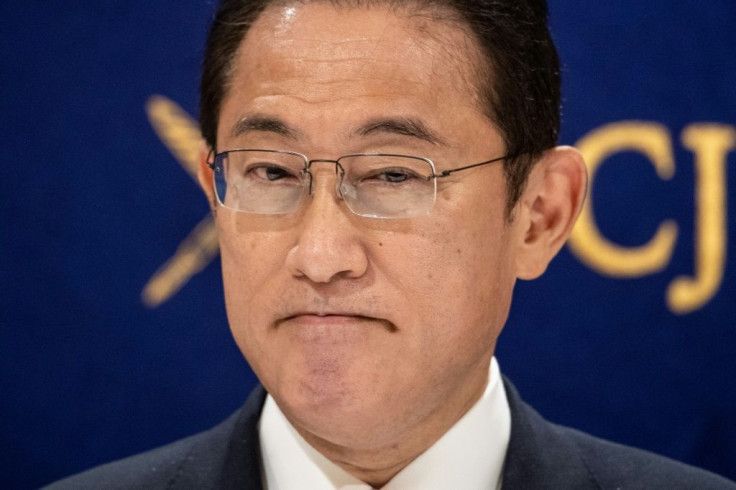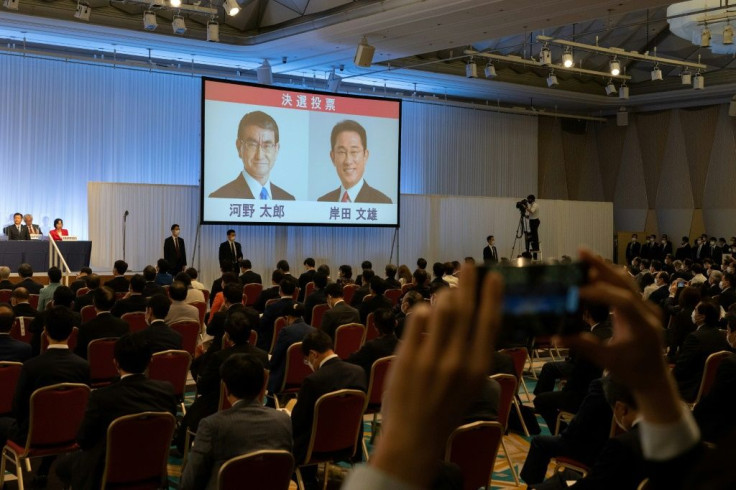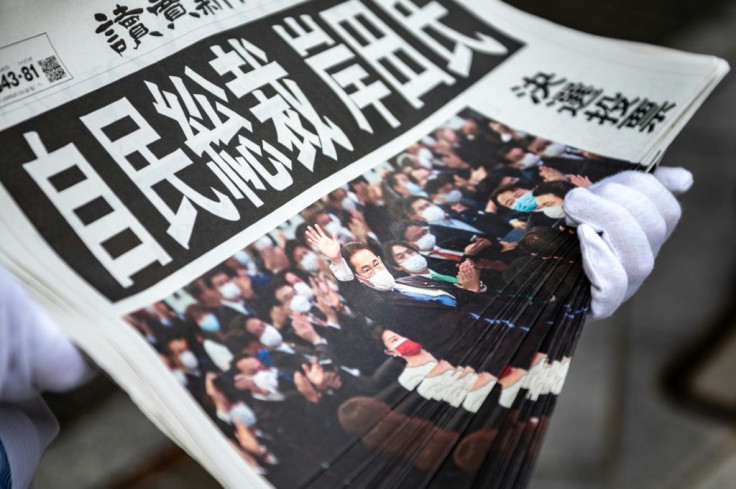Japan's PM Fumio Kishida: Soft-spoken Centrist And Baseball Fan
Japan's Prime Minister Fumio Kishida, on track to hold power in Sunday's general elections, is a soft-spoken leader with a reputation for seeking the middle ground and a fondness for baseball.
The 64-year-old scion of a Hiroshima family of politicians is seen as experienced and capable, despite a low-key presence sometimes characterised as a lack of charisma.
As exit polls predicted his ruling coalition would hold power after the polls closed, he said that "if the ruling coalition is given a majority, the government is given trust. It is a big deal."

It was his first major test as prime minister since replacing Yoshihide Suga as leader of the long-ruling Liberal Democratic Party a month ago.
Seeking to set himself apart from the unpopular pandemic response of Suga's government, Kishida has touted his listening skills and promised a fresh stimulus package in a bid to revive the world's third largest economy.
He has also vowed to tackle income inequality under his so-called new capitalism, although details at this stage remain vague.

On Sunday, he said he would stick to his word if he won the vote.
"It will lead to greater and wider support from the public if we implement the various programmes we have promised," he said.
Kishida served as foreign minister between 2012-17, during which time he negotiated accords with Russia and South Korea, with whom Japan's relations are often frosty.

He has called abolishing nuclear weapons "my life's work", and in 2016 helped bring then-US president Barack Obama to Hiroshima on a historic visit.
But despite his liberal reputation, he has been reticent on some social hot-button issues like gay marriage, saying he had "not reached the point for accepting same-sex marriage".
He has also taken a cautious line on allowing married couples to keep separate surnames, another controversial issue.
"Prime minister Kishida has not always been very clear about what he wants to do in terms of macroeconomic policy," Kenneth Mori McElwain, a social science professor at the University of Tokyo, said at a briefing this week.

"But... it's very clear that the LDP is not very positive towards reforms of Japan in a more progressive direction," Mori said.
Following in the footsteps of his father and grandfather, Kishida entered politics in 1993, after working at a bank as the Japanese economy boomed.
As a child, his family lived for several years in New York where he suffered racism at school, an experience he reportedly says gave him a strong sense of justice.
Kishida is a big fan of the Hiroshima Carp baseball team, and is said to enjoy a drink, while his wife hails from a wealthy sake-brewing family.
At school he was a keen baseball player himself, but failed three times to pass the law entrance exam for Tokyo University, much to his parents' disappointment.
He studied instead at Waseda, a prestigious private university in the capital that he reportedly chose for its serious, unpretentious atmosphere.
As prime minister, the father-of-three is generally expected to hew to Japan's existing path on defence, foreign and economic policy.
He "shares the same policy core" as Suga and his predecessor Shinzo Abe, said Corey Wallace, an assistant professor at Kanagawa University who focuses on Japanese politics.
However, "what he really, really stands for is a little bit unclear... nothing really stands out as Kishida's personal hobby-horse issue," Wallace told AFP.
During the party leadership contest, Kishida invited voters to leave him messages in a suggestion box and carried a notebook to events in which to scribble down ideas from the public.
But he hasn't always connected with the population and found himself roundly mocked during last year's LDP leadership vote when he posted an awkwardly posed picture on Twitter of his wife serving him dinner in an apron.
© Copyright AFP 2024. All rights reserved.





















